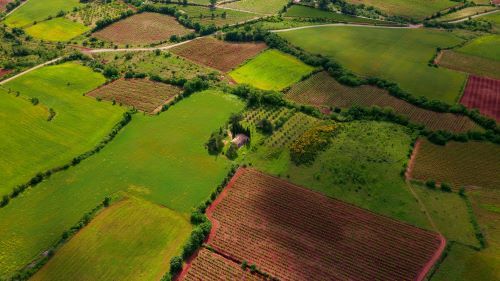
7 July 2023
Defra has released guidance on how local nature recovery strategies will be developed by local authorities, in collaboration with other organisations, to achieve nature restoration. They will include a habitat map and biodiversity priorities, with a focus on actions like restoring peatland soils, planting trees and adopting sustainable management practices for existing habitats.
Defra is also introducing the Farming Innovation Investor Partnership Competition, offering small and medium-sized farms £5 million in grant funding to scale up innovative practices, including those that support soil health and productivity. The competition aims to blend grant funding with private investment and support the commercialization of on-farm technologies.
Sustain has launched a new campaign urging councils to take action through the planning system to protect nature, promote sustainable farming, and create a prosperous green future. It comes in response to David Attenborough's documentary, "Wild Isles," revealing the severe pollution of rivers caused by factory farming.
With hot summers drying soils and damaging plants, prairie planting is gaining popularity in the UK as a more sustainable and wildlife-friendly alternative for garden lawns that can withstand drought and floods. Prairie planting was showcased at the Hampton Court Flower Show and features a purposeful mix of grasses and summer flowers that can cope with changing UK climates.
The European Commission has introduced a proposal for the continent's first soil law with a goal of healthy soils by 2050. The law focuses on reviving degraded soils to enhance carbon absorption and ensure sustainable food production. While the proposal includes monitoring soil health, fertiliser use, and erosion, it lacks legally binding targets for improving soil quality.
Campaign groups including the WWF, are expressing concerns about the EU's sustainable food law as discussions shift towards food security and strengthening the internal market, which they argue deviates from the law's intended focus. The law could have implications for agricultural practices and soil health, and is set to be released in the third quarter of this year.
A growing movement in Lebanon is aiming to transform conventional farming through seed sharing and communal education. Although the country is located in the historically fertile-soil region of the Fertile Crescent, it relies on food imports. Various initiatives are being employed, such as free classes and festivals, to introduce local farmers to ecological farming methods.
Researchers have found that listening to soil provides insights into belowground biodiversity without causing extensive land disturbance. Restored forest soils have been found to have more complex sounds and greater biodiversity, while intensively managed agricultural soils appear to be quieter, suggesting that soil sounds can serve as an indicator of soil health.
Chris Smaje’s new book Saying NO to a farm-free future,, argues that the key to humanity's success lies in focusing less on technological fixes and more on local, sustainable food production. His book comes partly in response to George Monbiot’s book Regenesis and its idea of reduced farm-based food production. Smaje’s approach, known as agrarian localism, emphasises low-carbon agroecological practices that meet local needs, supports healthy soils and fosters renewable livelihoods.